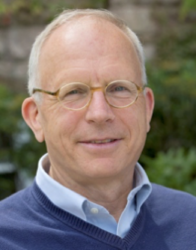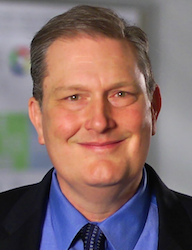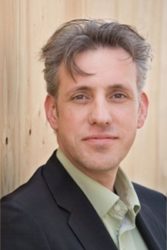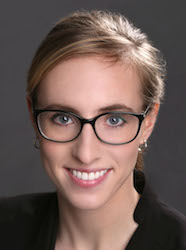1. An Introduction to Axiomatic Design
Engineering design was transformed to scientific discipline by Suh’s discovery of the axioms. This tutorial provides a philosophical foundation for design based on axioms. It extracts the essence from Suh’s seminal book, The Principles of Design, to explain the fundamental theory of Axiomatic Design. It describes a process, which exploits the theory, to produce the best possible design solutions. The naturalness of Suh’s Axioms are discussed. Other design methods are algorithmic. They imply that a good process yields a good result, yet there is no philosophical or theoretical basis for this implication. Suh’s Axioms provide a scientific basis for evaluating the quality of a design, regardless of the process. Just as a free-body diagram is essential to the application of Newton’s Laws, an appropriate decomposition of the design problem is essential to the exploitation of axiomatic design. The hieratical decomposition process is described. In applying Axiomatic Design, design problems are decomposed into three, parallel domains: functional, physical, and process, from abstract to specific. The integration of the detailed components from the decomposition into a complete design solution, following the dictates of Suh’s Axioms, completes the tutorial.
 Mechanical Engineering Department
Mechanical Engineering Department
Worcester Polytechnic Institute
100 Institute Rd., 235 Washburn Bldg
Worcester, MA 01609-2280
Phone: 508 831-5627 cell: 508 560-6986
Brown earned his PhD at the University of Vermont in 1983 and then spent four years in the Materials Department at the Swiss Federal Institute of Technology. Subsequently he was a senior research engineer working on product and process research and design at Atlas Copco’s European research center. Since the fall of 1989 Chris has been on the faculty at WPI. He has published over a hundred and fifty papers on axiomatic design, manufacturing, surface metrology, and sports engineering. He has patents on characterizing surface roughness, friction testing, and sports equipment. He also developed software for surface texture analysis. He teaches courses on axiomatic design of manufacturing processes, and on surface metrology, and undergraduate courses on manufacturing and on skiing technology. He also consults and teaches courses for industry, on axiomatic design and on surface metrology.
2. Decomposition Workshop
This working session applies the relationship between the Functional and Physical domains and the Information Axiom so that the participant is able to create an acceptable design at each level of a design’s decomposition. Participants will work in groups to develop a design decomposition for a product or system of interest. Emphasis will be placed on the importance of the group members’ tone in seeking collective agreement about design decisions and the role that Axiomatic Design plays to express design thinking.
 Professor of Systems Engineering
Professor of Systems Engineering
Director, Systems Engineering Center
Purdue University Fort Wayne
Dr. Cochran earned a Ph.D. in Industrial and Systems Engineering from Auburn University and M.S. in Industrial Engineering from the Pennsylvania State University. He served on the Board of Directors of the Institute of Industrial and Systems Engineers Lean Division and the Orthoworx Advanced Manufacturing Council and is a member of the St. Francis Hospital Innovation Center and the Purdue University Graduate Council.
Prior to joining Purdue Fort Wayne, Professor Cochran established the Production System Design laboratory in the Department of Mechanical Engineering at MIT. He served as Adjunct Professor at Southern Methodist University in Systems Engineering and Meijo University in Nagoya, Japan in the School of Business. He is a two-time recipient of the Shingo Prize for Manufacturing Excellence for his research in manufacturing system design and sustainability.
3. Teaching Axiomatic Design
Teaching Axiomatic Design (AD) is addressed as a design problem. There is a continuing societal need to design things better, faster, and cheaper. Nearly everything we encounter is designed. We are all customers and stakeholders in need of better designs. FR0 is to improve everyone’s life. DP0 is to teach everyone AD. The metric for success in teaching AD is its adaptation and use. To use AD people must be appropriately motivated, they must also have the means, and the opportunity. To be certain that AD improves life for everyone, everyone must know and practice ethics. These four items form the top-level functional decomposition: providing the means, motives, opportunities, and ethics. Two main alternative sets of DPs are discussed in the context of the people who are being taught.
An Axiomatic Design Academy is proposed to create and distribute teaching materials, and to certify competence levels of users and teachers.
First cannon of engineering ethics: Hold paramount the safety, health, and welfare of the public.
 Mechanical Engineering Department
Mechanical Engineering Department
Worcester Polytechnic Institute
100 Institute Rd., 235 Washburn Bldg
Worcester, MA 01609-2280
Phone: 508 831-5627 cell: 508 560-6986
4. Knowledge & Complexity
The concept of complexity in Axiomatic Design was introduced by Suh in 1999. Suh defines four different kinds of complexity, and introduces the understanding of ‘time dependence’. The original definition of complexity has been applied for almost twenty years. This masterclass tries to bring complexity in AD to the next level. This is possible within the original concept of complexity as it was defined in 1999 by Suh. Mainly the concept of ‘imaginary complexity’, that originates from ‘a lack of knowledge and understanding of the design by the designer’ will be investigated. This is done by returning to the ‘Theory of Information’ as introduced by Shannon. Shannons theory of information appears to provide room for expansion of the definition of complexity in AD. This enables the application of Information not only for the Information Axiom, but also for the Independence Axiom.
 Professor of Micro Systems
Professor of Micro Systems
HU University of Applied Sciences Utrecht
Padualaan 99
3584CH Utrecht, the Netherlands
Managing Director
DotDotFactory BV
Lichttoren 128
5611BJ Eindhoven, the Netherlands
Puik studied Mechanical Engineering and Electronics in Eindhoven, the Netherlands. In 1989, he started working as development engineer at Océ Technologies. He was active in research for inkjet printing systems, first on prototyping, later as project manager for inkjet production systems. In 2000 he switched to “TNO Industrial Technologies”. There he started a research project on modular production of Microsystems and MEMS. In 2003 he started a company based on these modular manufacturing solutions. Since 2006, Puik is professor at the university of applied technology in Utrecht. His chair “Microsystems Technology” focuses on effective development and manufacturing Microsystems. In 2009, Puik started the company DotDotFactory BV. DotDotFactory develops and produces sensor systems for structural health monitoring of industrial assets.
5. Adapt! A Holistic Approach to design changeable assembly units
Adapt! is a novel approach using Axiomatic Design Theory combined with Scrum, the agile project management framework, to create a structured product design and development process. The Adapt! method was developed and tested in the automotive industry. The method starts with an assessment of how much changeability is required. Following, the design phase commences with Axiomatic Design. The design phase is iterative and includes an in-house communication strategy between involved departments. The results of the decomposition process are then used to formulate work packages for the Scrum team. At this point the Scrum team takes over the development enabling agility and adaptability throughout the development.
 Process development and materials
Process development and materials
Daimler AG
71059 Sindelfingen, Gemany
Kate Kujawa is a Canadian engineer working towards her PhD at Mercedes-Benz and the Bundeswehr University in Munich. Kate works in Process and Materials engineering for the automotive assembly in Stuttgart Germany. After having completing two Bachelors of Science in both Mechanical and Aerospace Engineering at Oklahoma State University in the USA, she completed a Master of Engineering in Mechanical Engineering at the Esslingen University of Applied Sciences.
